

大会介绍
Introduction
Welcome to the 9th Sino-Finnish Joint Learning Innovation Institute (JoLII) 2024 Conference: Education in the Digital Era: Bridging Research and Practices.
The conference aims to explore the integration of digital technology in education and how it can enhance teaching and learning experiences. This conference will provide a platform for researchers, educators, and practitioners to share their research, insights, experiences, and innovative practices in the digital era education.
The conference will be held on 22-24 Nov, 2024, in the beautiful, vibrant, and climatically pleasant southern Chinese city of Shenzhen. JoLII (https://sf.bnu.edu.cn/) has been established by Beijing Normal University and the University of Helsinki and collaborating several other universities and organizations from China and Finland since 2015. JoLII has its roots in the Sino-Finnish Learning Garden co-operation scheme initiated in November 2015. The important mission of JoLII is to gather Chinese and Finnish researchers, teachers, and educational companies to work together for high quality learning and education to all people.
The co-organizers of the 2024 JoLII Conference are the Experimental School of Shenzhen Institute of Advanced Technology (ESSIAT, https://zkxjy.szns.edu.cn/) and Shenzhen University of Advanced Technology (SUAT, https://suat-sz.edu.cn/en/). The ESSIAT is a nine-year consistent public school jointly founded by the Shenzhen Institute of Advanced Technology of the Chinese Academy of Sciences and the Education Bureau of Nanshan District in March 2016. It is the first public school in Shenzhen that has been run by the government in cooperation with a national scientific research institution. SUAT is a comprehensive public university established under the legal guidance of the Shenzhen Municipal People's Government, which operates in a way that integrates production & education, research & education, and a comprehensive establishment of interdisciplinary majors.
The conference will focus on education research and practices in the digital era. The themes include:
1. Teaching and learning with new technology;
2. Teacher education in digital era;
3. Students and teachers' learning and wellbeing;
4. Early-childhood education in digital era;
5. 21st Century competencies teaching and learning.
合作伙伴
Partners
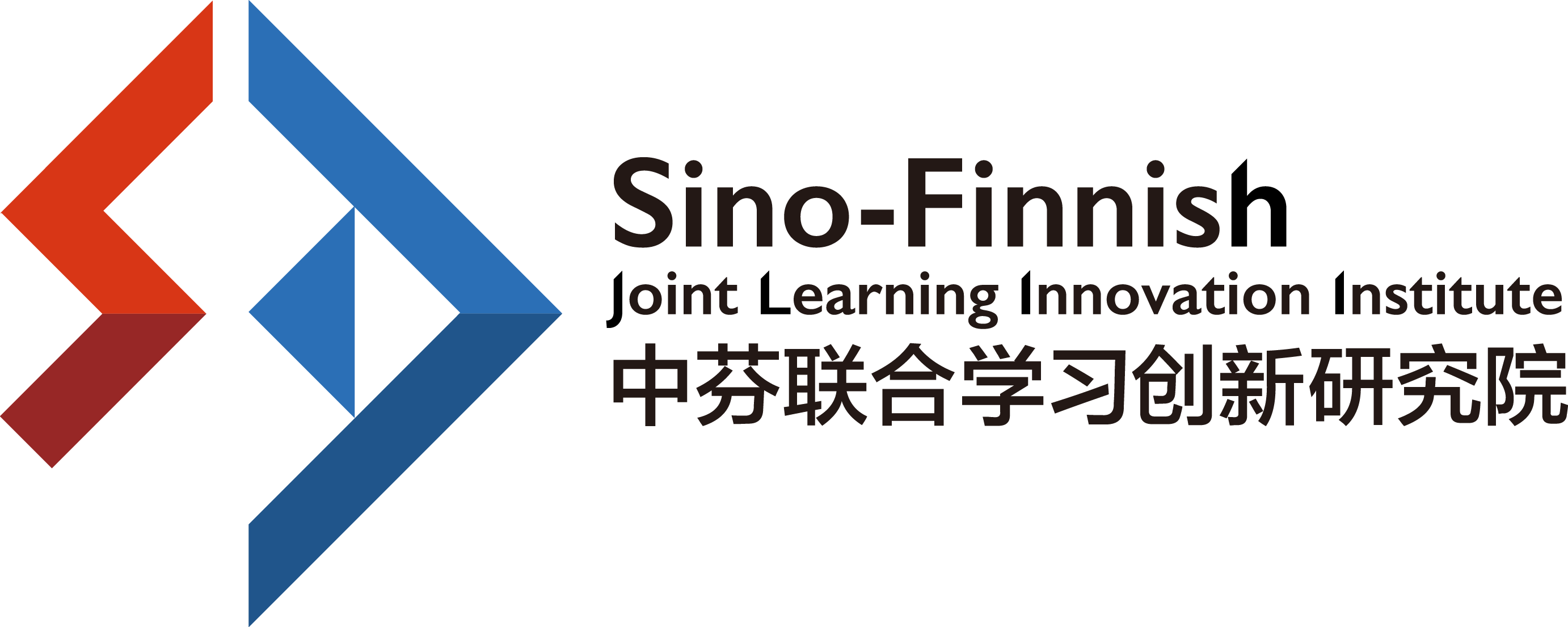
由北京师范大学作为中国高校牵头单位,赫尔辛基大学作为芬兰高校牵头单位,于2015年成立了中芬联合学习创新研究院。研究院致力于结合中芬两国的高校、基础教育学校和教育企业的力量,共同创造普适的、以学生为本的学习解决方案,以更好地培养21世纪人才。研究院下设六个中心,分别为中芬学习研究创新中心、中芬学习乐园体验中心、中芬教师发展中心、中芬教育信息技术中心、中芬双学位中心和中芬教育研究中心。
研究院目前共有11家芬兰理事单位和14家中国理事单位。芬兰理事单位包括10所高校(赫尔辛基大学、奥尔托大学、坦佩雷大学、于韦斯基大学、奥陆大学、东芬兰大学、图尔库大学、拉普兰大学、波里联盟大学、阿博·阿卡德米大学)和1家教育公司(Educluster股份有限公司)。中国理事单位包括7所大学(北京师范大学、北京大学、华东师范大学、西南大学、陕西师范大学、东北师范大学、华中师范大学),2家教育公司(网络网络公司、猿辅导),2所教育机构(中国教育学会、中育集团)和3所基础教育学校(北京正泽学校、北京师范大学第三附属中学、北京师范大学亚太实验学校)。2021年研究院与全球教学创新网络项目(GINTL)正式开启了合作。
Led by Beijing Normal University as the leading institution from Chinese universities and the University of Helsinki as the leading institution from Finnish universities, the Sino-Finnish Joint Learning Institute (JoLII) was established in 2015. JoLII is dedicated to combining the strengths of universities, basic education schools, and educational enterprises from both China and Finland to jointly create universal, student-centered learning solutions, in order to better cultivate talents for the 21st century. JoLII has established six centers: Learning Research Innovation Center, Learning Garden Experience Center, Teacher Development Center, Education ICT Center, Dual Degree Center, and Education Research Center.
In 2020, JoLII has signed the extension agreement (2020-2030) to continue its cooperation for another decade. The number of JoLII' s member institutions has increased to 11 in Finland and 14 in China. Finnish members are 10 universities (University of Helsinki, Aalto University, University of Tampere, University of Jyväskylä, University of Oulu, University of Eastern Finland, University of Turku, University of Lapland, University Consortium of Pori, Åbo Akademi University) and 1 company (Educluster Finland Ltd); Chinese members are 7 universities (Beijing Normal University, Peking University, East China Normal University, Southwest University, Shaanxi Normal University, Northeast Normal University, Central China Normal University), 2 companies (Netdragon Websoft Inc. and YUANFUDAO), 2 education societies (Chinese Society of Education and EduChina Group) and 3 schools (Beijing Zhengze School, The Third Affiliated Middle School of Beijing Normal University and Asia-Pacific Experimental School of Beijing Normal University). From 2021, JoLII has started cooperation with the Global Innovation Network for Teaching and Learning (GINTL, https://gintl.org/).

北京师范大学心理学科具有悠久的历史,最早可追溯至1902年。北京师范大学心理学部是国家世界一流心理学科建设单位,唯一一个心理学一级学科国家重点学科单位。心理学部建有国家理科基础科学研究与教学人才培养基地、发展心理学教育部人文社会科学重点研究基地、认知神经科学与学习国家重点实验室、应用实验心理北京市重点实验室、国家级心理学基础实验教学示范中心、国家级心理学虚拟仿真实验教学中心、北京高等学校示范性校内创新实践基地等。在教育部学科排名中,心理学科连续排名全国第一;"精神病学与心理学"和"神经科学与行为科学" 进入 ESI 世界前1%。学部致力于建设世界一流的心理学和脑科学,并服务于国家社会需求。
The development of psychology at Beijing Normal University has a long history which can be traced back to 1902. The Faculty of Psychology at Beijing Normal University stably ranks the 1st in the Ministry of Education discipline ranking of psychology. The faculty is the only national key discipline unit of first-level psychology discipline in China. The Faculty has established the National Base for Basic Science Research and Teaching Talents Training, the Key Research Base for Humanities and Social Sciences of the Ministry of Education for Developmental Psychology, the State Key Laboratory of Cognitive Neuroscience and Learning, the Beijing Key Laboratory of Applied Experimental Psychology, the National Demonstration Center for Basic Psychology Experimental Teaching, the National Center for Virtual Simulation Experimental Teaching of Psychology, and the Beijing Institute of Higher Education Model campus innovation practice base. Its Psychiatry and Psychology, Neuroscience and Behavioral Sciences are among the top 1% of ESI. The Faculty is dedicated to construct the world - leading Psychology and Brain Science Discipline with a pervasive commitment to serve the Nation.
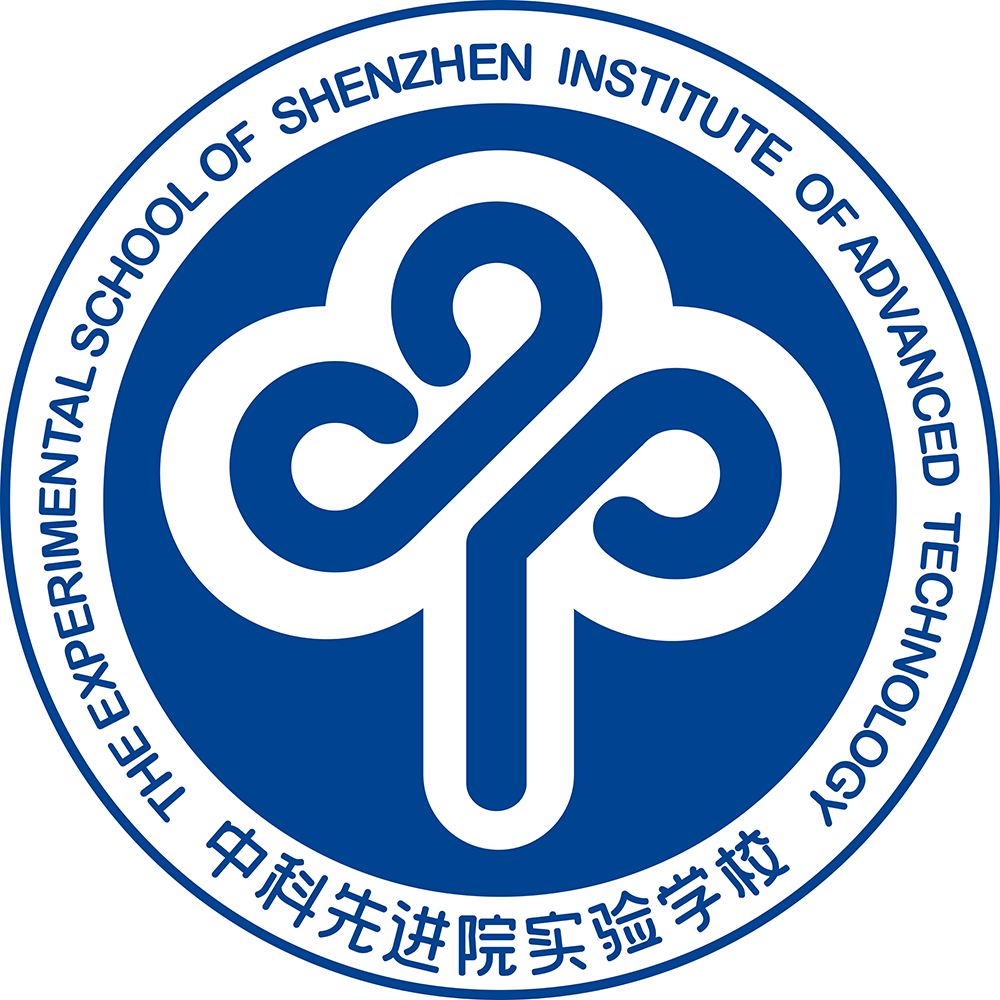
中国科学院深圳先进技术研究院实验学校(简称“中科先进院实验学校”),是由南山区教育局与中国科学院深圳先进技术研究院于2016年3月联合创办的一所九年一贯制公办学校,是深圳市第一家政府与国家科学研究机构合作办学的公立学校。学校地处南山区与福田区“双中心”交汇之处,为南山区距离深圳市中心区域最近的学校。学校北依塘朗山、南望华侨城、东眺美丽的福田香蜜湖、西临著名的雅昌艺术馆。
学校目前共有36个教学班,1500余名学生,110多位教职工。学校师资队伍实力雄厚,省市区级名师、骨干教师占学校教师总人数的三分之一,北大、清华等著名高校硕士及以上学历的教师占比超50%。博士教师团队作为教师队伍的必要补充,和学校教师团队深度融合,连续五年荣获、三年包揽南山区“科学传播贡献奖”。学校建有国内中小学首个“心理梦工厂”、六间创客实验室以及物理、书法等常规功能室30余间;一体化40G网络中心,校园双网(有线、无线)全覆盖,教学仪器按国家一类标准配置;图书馆两层,藏书3.5万多册;室内外运动场馆、地下停车场、生物园等,功能齐全,环境优美。
2016年建校以来,中科先进院实验学校全体同仁,脚踏实地,守正出新,秉承“仁而立人,切问躬行”的校训,首创“科学+”办学理念;始终把落实“立德树人”作为根本任务,坚持“五育并举、全面发展”,着力培养“志向高远、心性优美、体魄强健、思想活跃、习惯优良”的优秀学生,努力创办南中国科普基地暨科学教育示范学校。
学校以实际行动积极实现南山区“办一所优一所”的目标。严抓教育教学质量,科学施教,打造“以学为本”的课堂文化;积极倡导自主、合作、探究等多种学习方式;为学生创设真实而生动的学习生活体验场,得到了学生家长和社区群众的肯定。中科先进院实验学校办学成果丰硕:先后被评为“深圳市十大科技创新教育示范学校”“深圳市改革创新领跑学校”“粤港澳大湾区青少年创新科学教育基地”先导学校、“南山少年创新院分院学校”“第二批‘中小学创客实践基地’”“南山区教育系统先进单位”等20余项荣誉称号;荣获“南山区教育改革创新奖”特等奖、“广东省第二届中小学学校建设成果”一等奖等荣誉称号50余项。
The Experimental School of Shenzhen Institute of Advanced Technology is a nine-year consistent public school jointly founded by the Shenzhen Institute of Advanced Technology of the Chinese Academy of Sciences and the Education Bureau of Nanshan District in March 2016. It is the first public school in Shenzhen that has been run by the government in cooperation with a national scientific research institution. The school is located at the intersection of Nanshan District and Futian District, with Tanglang Mountain to the north, Overseas Chinese Town to the south, the beautiful Xiangmi Lake to the east, and the famous Artron Art Centre to the west. Covering an area of 20,208.75 square meters and a building area of 24,695.8 square meters, our school currently has 38 teaching classes, 1,696 students, and 116 faculty members. Famous and backbone teachers at or above the district level account for one-third of the total number of school teachers, while teachers with master's degrees or above from universities such as Peking University and Tsinghua University account for over 50%. The team of "doctoral teachers" has deeply integrated with the school's teaching staff, and has won the "Science Communication Contribution Award" in Nanshan District for five consecutive years. We have established the first "psychological dream factory" in domestic primary and secondary schools, 6 maker laboratories, more than 30 conventional multipurpose rooms such as physics and calligraphy, and an integrated 40G network center. Meanwhile, our school has a full coverage of campus dual networks (wired and wireless), and teaching instruments configured according to national first-class standards. Also, there is a two-story library, indoor and outdoor sports venues, a biological park, a student comprehensive practice base, etc., with complete functions and beautiful environment.
The school strictly emphasizes the quality of education and teaching, focuses on scientific teaching, and creates a "student-centered" classroom culture. It actively promotes the new curriculum reform, centers on core competencies, advocates various kinds of learning methods like interdisciplinary themes, project-based, personalized and so on, and creates a real and vivid learning and life experience field. All colleagues in the school have always regarded the implementation of "moral education and talent cultivation", as the fundamental task, and adhere to the principle of "five educations and comprehensive development". Adhering to the school motto of "being benevolent and standing tall, always questioning and practicing", being down-to-earth, guarding the right path and creating new ones, and pioneering the "Science Plus" educational philosophy, our school has made and will continue to make great efforts to cultivate outstanding students with lofty aspirations, beautiful minds, strong physical fitness, active thinking, and good habits. The effectiveness of the school has been widely recognized by parents of students, community residents, and various sectors of society. The school has achieved fruitful results: it has won more than 50 honors, including the third prize in the 6th Global Future Education Design Competition, the first prize in the 4th Guangdong-Hong Kong-Macao Greater Bay Area Life Education Cultural and Creative (Micro Film) Competition, and the first prize in the 2nd Guangdong Province Primary and Secondary School Construction Achievements. It was awarded as “a leading school in the Guangdong-Hong Kong-Macao Greater Bay Area Youth Innovation Science Education Base”, “one of the top ten science and technology innovation education demonstration schools in Shenzhen”, and “one of the leading schools in reform and innovation in Shenzhen”.

深圳理工大学(以下简称“深圳理工”)是深圳新成立的一所大学,深圳是一座充满魅力、动力、活力和创新力的城市。学校在中国科学院和广东省的支持下,以中国科学院深圳先进技术研究院优质丰厚的科教产教资源为基础,“高起点、高水平、高标准、高质量”建设一流新型研究型大学。
经过近6年的筹建,深圳理工已集聚一支以海外高层次人才为主的高水平师资队伍,依托一流科研机构优质丰厚的科教产教资源,借鉴世界一流理工科大学办学模式,产教融合、科教融汇办大学,学科交叉建专业,三院一体(学院、研究院、书院)育人才,通过学术、工程、创业三轨培养,开展精英化本科教育,因材施教培养优秀科学家、卓越工程师和创新企业家。
2024年首次招收本科生,共在广东省录取物理类考生120人,其中最高录取分数为664分,最低录取分数为624分,最低分数超本科线182分。深圳理工作为新型研究型大学的代表,以创新独特的人才培养模式、弘扬科学家精神和特区精神的校园文化等得到了考生和家长的广泛关注与认可。
深圳理工根据科技发展新趋势和新质生产力发展要求,构建面向国家战略发展需求、服务国家战略性新兴产业和未来产业发展的学科专业体系,已建设生命健康学院、合成生物学院、计算机科学与控制工程学院、生物医学工程学院、材料科学与能源工程学院、药学院、算力微电子学院七个学科交叉专业学院;细胞与基因技术研究院、未来农业研究院、人工智能研究院等前沿技术研究院。
Shenzhen University of Advanced Technology (SUAT) is a newly established and highly rated university in Shenzhen, a city full of charms, energy, vitality and innovation. With the support of the Chinese Academy of Sciences and Guangdong Province as well as their abundant resources in science, education, and industry, SUAT will build a first-class and new-type research university with "high starting point, high standard and high quality".
SUAT has already attracted a cohort of outstanding scientists from major research institutes and universities around the world. Bolstered by excellent scientific, educational, and industrial resources from the Chinese Academy of Sciences, Guangdong Province and Shenzhen City, SUAT fosters interdisciplinary research and training, integrates research and entrepreneurship into education, and aims to be a world-class university of science and technology. With a trinity of colleges (academic colleges, research institutes, and residential colleges), SUAT nurtures students through a three-track educational system encompassing basic science, engineering, and entrepreneurship. It embraces a philosophy of educating elite undergraduates, tailoring the instruction towards the education of outstanding scientists, exceptional engineers, and innovative entrepreneurs.
In 2024, SUAT has enrolled its first cohort of 120 undergraduate students in the science, technology, engineering and mathematics track. The 120 strong SUATers were among the highest-ranked high school students from Guangdong Province with the national entrance exam scores ranging from 664 to 624, which exceeded the undergraduate admission line by 182 points. Hence SUAT has been recognized to be an exemplary new research university, earns the reputation of having its innovative and unique educational model, and serves as a role model for new research universities.
To meet the challenges of emerging science, technology and industry and to energize the emerging productive forces, SUAT has established seven faculties, namely the Faculty of Life and Health Sciences, the Faculty of Pharmaceutical Sciences, the Faculty of Computer Science and Control Engineering, the Faculty of Synthetic Biology, the Faculty of Materials Science and Energy Engineering, the Faculty of Biomedical Engineering and the Faculty of Computility Microelectronics, in addiction to a number of research institutes including the Institute of Cell and Gene Technology, the Institute of Emerging Agricultural Technology and the Institute of Artificial Intelligence Research.

基于“教育强国、科技强国、人才强国”的国家战略,立足经济大区、科技强区、创新高地的南山实际,回应教育高质量发展的必然要求,南山区不断完善全链条优质教育,以丰富的教育资源、强大的师资力量和高质量的教育体系,深耕教育数字化转型,创新人才培养模式,全面创建中国特色社会主义先行示范区基础教育先锋城区。
南山区集聚9所高校、9家诺奖科学家实验室以及300多家国家省市级创新载体。全区中小学114所,幼儿园212所,在校生18.8万人,在园儿童4.9万人,教职工2万余人。全区国际学校10所,在南山就读的国际学生1万余人。
南山区是首批国家级课程改革实验区,首批全国高中课程改革实验区,全国教育信息化综合应用优秀试点区,广东省首个教育现代化先进区。2022年,与教育部中外人文交流中心共建全省首个“青少年中外人文交流教育特色区”。2023年,入选广东省基础教育高质量发展示范区、教育部信息技术支撑学生综合素质评价试点区。2024年,获评广东省中小学智慧教育应用示范区、广东省中小学科学教育示范区,获评2025年广东省基础教育课程教学改革深化行动实验区。政府履行教育职责评价连续六年获评优秀。
In alignment with the national imperatives of leveraging education, science and technology, and talent to empower the nation, and anchored in Nanshan's stature as a pivotal economic, technological, and innovative stronghold, the district is committed to elevating the quality of education across the board, With rich educational resources, strong teachers and high-quality education system, we will cultivate the digital transformation of education innovate the talent training model, and comprehensively create a pioneering urban area for basic education in the pioneering demonstration zone of socialism with Chinese characteristics. Nanshan hosts 9 universities, 9 laboratories led by Nobel Laureate scientists, and over 300 innovation platforms at the national, provincial, and municipal levels. The district encompasses 114 primary and seuondary schools and 212 kindergartens, catering to 188,000 students and 49,000 kindergarten children, supported by a workforce of over 20,000 educational professionals. Furthermore, there are 10 international schools andmore than 10.000 international students in Nanshan.
Nanshan District is one of the first national experimental districts of curriculum reform, one of the first national experimental districts for high school curriculum reform, a national pilot district for educational information integration application, and the first district in Guangdong Province to achieve educational modernization. In 2022, it established the first "Sino-Foreign People-yo-People Exchange and Cooperative Education Model District" in Guangdong Province with the Center for International People-to-People Exchange, Ministry of Education.
In 2023, it was selected as a demonstration district for basic education quality development in Guangdong Province and a pilot district for the use of information technology to support student comprehensive evaluation by the Ministry of Education, In 2024, it was named a demonstration district for smart education application in primary and secondary schools in Guangdong Province, a demonstration district for science education in primary and secondary schools in Guangdong Province, and was selected as a pilot district for deepening the reform of basic education curriculum and teaching in Guangdong Province in 2025.
The government's evaluation of its performance in education has been rated as excellent for six consecutive years.
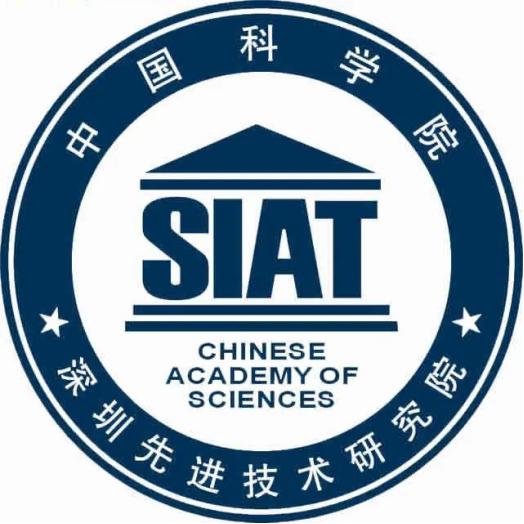
中国科学院深圳先进技术研究院(简称“深圳先进院”)由中国科学院、深圳市人民政府及香港中文大学于2006年2月共同建立,实行理事会管理,探索体制机制创新;瞄准国际一流工研院,致力于建设与国际学术接轨、与粤港澳大湾区产业接轨的新型科研机构,定位为提升粤港澳大湾区制造业、健康产业和现代服务业的自主创新能力,推动自主知识产权新工业建立,率先建成国际一流科研机构。
The Shenzhen Institutes of Advanced Technology (SIAT) of the Chinese Academy of Science (CAS) was jointly established by CAS, the Shenzhen municipal government and the Chinese University of Hong Kong in February 2006. SIAT aims to enhance the innovative capacity of the equipment manufacturing and service industries in the Guangdong-Hong Kong region, promote the development of emerging industries possessing their own proprietary intellectual property, and become a world-class industrial research institute.
日程安排
Schedule
第九届中芬年会地址:中科先进院实验学校(广东省深圳市南山区深安路38号)
The 9th JoLII Annual Conference Location: The Experimental School of Shenzhen Institute of Advanced Technology (No. 38, Shen’an Road, Nanshan Distict, Shenzhen, Guangdong Province)
| 日期 Date |
时间 Time |
大会日程 Conference Agenda |
主持人 Host |
地点 Location |
|---|---|---|---|---|
| 11.22 | 10:00-17:00 | 会议报到 Conference Registration |
实验学校“科学+”文化艺术展示中心(大门左侧负一楼); "Science +" Culture and Art Exhibition Center |
|
| 15:00-17:00 | 理事会会议 JoLii Committee Meeting |
王君 WANG Jun |
麒麟山庄杜鹃厅(仅理事参加) Dujuan Hall,Kylin Villa |
|
| 11.23 | 9:00-10:00 | 开幕式 Opening Ceremony |
江涛 JIANG Tao |
实验学校报告厅,C栋一楼 Lecture Room, 1F Building C |
| 10:00-11:30 | 主旨报告 Keynote Speech |
王君 WANG Jun |
||
| 11:30-13:00 | 午餐 Lunch |
|||
| 11:30-13:00 | 世界咖啡工作坊 World Café Workshop |
蔡瑜琢 CAI Yuzhuo |
实验学校图书馆A栋一楼A101(仅限报名参加) Library, A101, 1F Building A, registered only |
|
| 13:00-14:30 | 主旨报告 Keynote Speech |
Olli-Pekka Malinen | 实验学校报告厅,C栋一楼 Lecture Room, 1F Building C |
|
| 14:30-14:45 | 茶歇 Tea/Coffee Break |
|||
| 14:45-15:15 | 课堂观摩 Class observation |
|||
| 15:15-17:15 | 特邀报告 Invited Talk |
赵玉芳 ZHAO Yufang 唐鑫 TANG Xin |
实验学校报告厅,C栋一楼 Lecture Room, 1F Building C |
|
| 11.24 | 9:00-11:00 | 分论坛一:新技术环境下的教与学 Sub-forum 1: Teaching and learning with new technology |
杨东 YANG Dong |
实验学校互动录播教室,B栋五楼B502 Interactive Recording Classroom, B502, 5F Building B |
| 分论坛二: 数字时代教师教育 Sub-forum 2:Teacher education in digital era |
钱文丹 QIAN Wendan |
实验学校图书馆,A栋一楼A101 Library, A101, 1F Building A |
||
| 分论坛三:学生和教师的学习与身心健康 Sub-forum 3:Students and teachers’ learning and wellbeing |
唐鑫 TANG Xin |
实验学校会议室,D栋三 楼D307 Meeting Room, D307, 3F Building D |
||
| 分论坛四:数字时代的幼儿教育 Sub-forum 4:Early-childhood education in digital era |
牛双红 Shuanghong Jenny Niu |
实验学校传统文化教室,C栋五楼C504 Traditional Culture Classroom, C504, 5F Building C |
||
| 分论坛五:21世纪能力教学 Sub-forum 5: 21st Century competencies teaching and learning |
王岩 WANG Yan |
实验学校阅览室,A栋负一楼A-101 Reading Room, A-101, B1F Building A |
||
| 11:15-11:30 | 闭幕仪式 Closing ceremony |
Olli-Pekka Malinen 王君WANG Jun |
实验学校报告厅,C栋一楼 Lecture Room, 1F Building C |
|
| 11:30-13:00 | 午餐 Lunch |
|||
| 13:00-15:00 | 学校参观 School Visits Option 1/2 |
1.深圳理工大学—中科院先进技术研究院 Shenzhen University of Advanced Technology-The Shenzhen Institutes of Advanced Technology of the Chinese Academy of Science 2.育才实验学校——南外高中 Yucai Experimental School——Shenzhen Nanshan Foreign Language School |
||
主会场报告 Main Forum Presentations (11月23日,23th November)
| 会议 Session |
时间 Time |
主题 Topic |
发言人 Speaker |
|---|---|---|---|
| 主旨报告 Keynote Speech |
10:00-10:45 | 课程和评估需要转型,以整合理论和实践 Transformations needed in curricula and assessments for integrating theory and practice |
汉娜莉·涅米,赫尔辛基大学 University of Helsinki Hannele Niemi |
| 10:45-11:30 | 人工智能系统CSIEC在对外英语教学中的应用 The Application of an AI System CSIEC in the Instruction of English as a Foreign Language |
贾积有,北京大学 Peking University JIA Jiyou |
|
| 13:00-13:45 | 教育中值得信赖的人工智能 Trustworthy Artificial Intelligence in Education |
卢宇,北京师范大学 Beijing Normal University LU Yu |
|
| 13:45-14:30 | 教师数字化能力的系统发展:芬兰应用科学大学的数字化转型 Systematic development of teacher’s digital competences: digital transformation in a Finnish UAS |
亚瑞·穆提斯尔塔,萨塔昆塔应用科学大学 Satakunta University of Applied Sciences Jari Multisilta |
|
| 14:30-14:45 | 茶歇 Tea/Coffee brea |
||
| 特邀报告 Invited Talk |
15:15-15:45 | 连接数字化故事讲述与教育:疫情下的适应力 Bridging Digital Storytelling and Education: Resilience in the Pandemic Era |
图亚·图伦,拉普兰大学 University of Lapland Tuija Turunen |
| 15:45-16:15 | 2014年到2024年:十年间教师对智能学习环境认知的变化及其影响 From 2014 to 2024: Changes and Their Implication of Teachers’ Perception on Smart Learning Environments over a Decade |
李葆萍,北京师范大学 Beijing Normal University LI Baoping |
|
| 16:15-16:45 | 通过“项目式学习”培养科学学习和批判性思维技能 Learning science and critical thinking skills through project-based learning |
亚里·拉沃宁,赫尔辛基大学 University of Helsinki Jari Lavonen |
|
| 16:45-17:15 | 教师数字素养与数字技术应用 Teachers’ Digital Competence and Digital Technology Adoption |
罗九同,深圳大学 Shenzhen University LUO Jiutong |
|
世界咖啡工作坊World Cafe Workshop(11月23日, 23th Novembwe)
Theme: Rethinking Education Cooperation in a New Era: Triparty Interactions between Mainland China, Hong Kong, and Finland
主题:反思新时代的教育合作:中国内地、香港、芬兰三方互动
| 时间 Time |
主题 Topic |
发言人 Speaker |
|---|---|---|
| 11:30-11:40 | Welcome & Introduction 欢迎及介绍 |
蔡瑜琢,坦佩雷大学 Tampere University CAI Yuzhuo |
| 11:40-12:00 | Round 1: Challenges in Sino-Finnish Education Cooperation 第一轮:中芬教育合作中的挑战 |
Yulia Shumilova,坦佩雷大学 Tampere University Yulia Shumilova, |
| 12:00-12:20 | Round 2: Opportunities in Sino-Finnish Education Cooperation 第二轮:中芬教育合作中的机遇 |
郑高明,同济大学 Tongji University Dr. Gaoming ZHENG |
| 12:20-12:40 | Round 3: The Role of Hong Kong 第三轮:香港的角色 |
QIU Ruoyi, 香港教育大学 The Education University of Hong Kong Dr. Ruoyi Qi |
| 12:40-12:55 | Summary & Actionable Insights 总结及可操作的洞见 |
Facilitators |
分论坛报告 Sub-forum Presentations (11月24日,24 November)
分论坛一:新技术环境下的教与学
Sub-forum 1: Teaching and learning with new technology
主持人:杨东
Host: YANG Dong
| 时间 Time |
主题 Topic |
发言人 Speaker |
|---|---|---|
| 9:00-9:20 | 数字时代赋能教育:(重新)强调知识丰富型教育的必要性 Empowering education in the digital era: (re)claiming the need of knowledge-rich education |
HE Yujing,赫尔辛基大学 University of Helsinki HE Yujing |
| 9:20-9:40 | 职业教育数字化学习资源建设研究 Research on the Construction of Digital Learning Resources in Vocational Education |
周衍安,江苏建筑职业技术学院 Jiangsu Vocational Institute of Architectural Technology ZHOU Yanan |
| 9:40-10:00 | 跨文化视角下ChatGPT在语言学习中的赞扬效果 Cross-Cultural Effects of ChatGPT Praise in Language Learning |
Jang Hyun Kim,成均馆大学 Sungkyunkwan University Jang Hyun Kim |
| 10:00-10:10 | 休息时间/Break | |
| 10:10-10:30 | ChatGPT辅助教师反馈对学生英语写作自主学习与教师反馈感知 Impact of ChatGPT-Assisted Teacher Feedback on Students' Self-regulated Learning in English Writing and Students' Perceptions of Teacher Feedback |
XIAN Xinjia,西南大学 Southwest university XIAN Xinjia |
| 10:30-10:50 | 从屏幕到场景:早期STEM中技术增强的自然发现 From Screen to Scene: Technology-Enhanced Nature Discoveries in Early STEM |
GAO Mingwei,香港教育大学 The Education University of Hong Kong GAO Mingwei |
分论坛二: 数字时代教师教育
Sub-forum 2:Teacher education in digital era
主持人:钱文丹
Host: QIAN Wendan
| 时间 Time |
主题 Topic |
发言人 Speaker |
|---|---|---|
| 9:00-9:20 | 芬兰、香港、巴西和韩国第二语言教师在教学中使用人工智能(AI)的准备程度和认知的比较研究 A comparative study of second language teachers’ readiness and perceptions of using Artificial Intelligence (AI) in teaching and learning across Finland, Hong Kong, Brazil, and South Korea |
Satu-Maarit Korte,拉普兰大学 University of Lapland Satu-Maarit Korte |
| 9:20-9:40 | 通用人工智能背景下的教师教育:文化要求和培训建议 Teacher Education in the Context of GenAI: Literacy Requirements and Training Recommendations |
蔡怡淳,上海交通大学 Shanghai Jiao Tong University CAI Yichun |
| 9:40-10:00 | 教师在人工智能教育中的教育角色:访谈研究 Teachers’ Pedagogical Role in Education Through Artificial Intelligence (AI): an Interview Study |
李晓燕,拉普兰大学 University of Lapland LI Xiaoyan |
| 10:00-10:20 | 科学还是理性?芬兰教师教育中的通识教育 Scientific or Rational? Finnish General Education of Teacher Education Programme |
王可嘉&Junfeng Zhang,南京大学 Nanjing University WANG Kejia & ZHANG Junfeng |
| 10:20-10:40 | 生成性人工智能在中等教育和教师培训中的作用研究 A Study on the Role of Generative AI in Secondary Education and Teacher Training |
彭丽媛,上海交通大学 Shanghai Jiao Tong University PENG Liyuan |
| 10:40-11:00 | 从信息素养到数字素养:芬兰教育数字化的启示 From Information Literacy to Digital Literacy: Insights from Finland’s Educational Digitalization |
刘晓绪,江苏大学 University of Jiangsu LIU Xiaoxu |
分论坛三:学生和教师的学习和身心健康
Sub-forum 3:Students and teachers’ learning and wellbeing
主持人:唐鑫
Host: TANG Xin
| 时间 Time |
主题 Topic |
发言人 Speaker |
|---|---|---|
| 9:00-9:20 | 影响大学汉语初级课程学习动机的因素 Factors affecting motivation during a beginner Mandarin Chinese university course |
Sara Jaaksola,图尔库大学 University of Turku Sara Jaaksola |
| 9:20-9:40 | 在线协作学习中的社会互动:人工智能技术在提高团队绩效中的作用和应用 The social interaction in online collaborative learning: The role and application of AI technology in improving group performance |
XIAO Can,华中师范大学 Central China Normal University XIAO Can |
| 9:40-10:00 | 通过翻转课堂培养问题解决能力和信息素养:学校教育中的两阶段实验研究 Developing Problem Solving Skills and Information Literacy by Flipped Classroom: A Two-Stage Experiment Study in School Education |
余亮,西南大学 Southwest University YU Liang |
| 10:00-10:20 | 通过视频增强观察促进教师反思和专业发展:拉普兰大学的案例研究 Enhancing Teacher reflection and professional development through video-enhanced observation: A case study from the University of Lapland |
Tuija Turunen & Outi Kyrö-Ämmälä,拉普兰大学 University of Lapland Tuija Turunen & Outi Kyrö-Ämmälä |
| 10:20-10:40 | 应用机器学习了解社会情绪技能对主观幸福感和身体健康的作用 Applying Machine Learning to Understand the Role of Social-Emotional Skills on Subjective Wellbeing and Physical Health |
孟涵,上海交通大学 Shanghai Jiao Tong University MENG Han |
分论坛四:数字时代的幼儿教育
Sub-forum 4:Early-childhood education in digital era
主持人:牛双红
Host: Shuanghong Jenny Niu
| 时间 Time |
主题 Topic |
发言人 Speaker |
|---|---|---|
| 9:00-9:15 | 远程教育中的教育设计研究:提高职前教师的技能,以支持儿童的学习、幸福和ECEC文化 Educational Design Research in Distance Learning: Enhancing Pre-service Teachers' Skills to Support Children's Learning, Well-being, and ECEC Culture |
Inkeri Ruokonen,图尔库大学 University of Turku Inkeri Ruokonen |
| 9:15-9:30 | 行为管理中教师自我效能感对课堂行为氛围的影响 The effect of teacher self-efficacy in behavior management on classroom behavioral climate |
Olli-Pekka Malinen,赫尔辛基大学 University of Helsinki Olli-Pekka Malinen |
| 9:30-9:45 | 在幼儿教育中教授善良和同情心 Teaching kindness and compassion in early childhood education |
Lotta Uusitalo,赫尔辛基大学 University of Helsinki Lotta Uusitalo |
| 9:45-10:00 | 游戏性是一种教学专长: "希望这一主题在幼儿师范教育中得到更多关注 Playfulness as a pedagogical expertise: “Hopefully this topic gets more attention in early childhood teacher education” |
Signe Siklander,奥卢大学 University of Oulu Signe Siklander |
| 10:00-10:15 | 芬兰和中国国家核心课程和指导方针中幼儿教育中的游戏和游戏学习 Play and playful learning in early childhood education in Finnish and Chinese national core curriculum and guidelines. |
Anitta Melasalmi,图尔库大学 University of Turku Anitta Melasalmi |
| 10:15-10:30 | 促进职前幼儿教育教师的专业好奇心:幼儿教师教育中的有效教学策略 Facilitating Professional Curiosity for Pre-service ECE Teachers: The Effective Instruction Strategies in Early Childhood Teacher Education |
韩馨香,绍兴职业技术学院 Shaoxing Vocational & Technical College HAN Xinxiang |
| 10:30-10:45 | 在数字时代通过反思实践发展幼儿教育教师的教学专业知识 Developing ECE teachers’ pedagogical expertise through reflective practices in digital era |
Jaakko Moilanen,奥卢大学 University of Oulu Jaakko Moilanen |
| 10:45-11:00 | 从游戏到进步:以解决问题为中心的学生人际交往能力学习方法 From Play to Progress: Student Learning of Interpersonal Competencies with a Solution-focused Approach |
Jenny Niu,赫尔辛基大学 University of Helsinki Jenny Niu |
分论坛五:21世纪能力教学
Sub-forum 5: 21st Century competencies teaching and learning
主持人:王岩
Host:WANG Ya
| 时间 Time |
主题 Topic |
发言人 Speaker |
|---|---|---|
| 9:00-9:20 | 通过多学科创新在中国发展老年护理教育 Developing Gerontological Nursing Education in China through Multidisciplinary Innovations |
Marjo Palovaara,于韦斯屈莱理工大学 Jamk University of Applied Sciences Marjo Palovaara |
| 9:20-9:40 | 探索空间探索中的移情设计思维:创新空间中的协作实验 Exploring Empathy Design Thinking (EDT) in Space Exploration: A Collaborative Experiment in an Innovation Space |
刘伟,北京师范大学 Beijing Normal University LIU Wei |
| 10:00-10:20 | 休息/Break | |
| 10:20-10:40 | 组织学课程基于时间控制的线上线下混合教学模式探索 Exploration of online and offline mixed teaching model based on time control in Histology course |
周琳,华中科技大学 Huazhong University of Science & Technology LIN Zhou |
| 10:40-11:00 | 科学教师教育项目中的横向能力:芬兰与中国的比较研究 Transversal Competencies in Science Teacher Education Programs: A Comparative Study between Finland and China |
王岩,深圳大学 Shenzhen University WANG Yan |
嘉宾介绍
Guest Introduction
主旨报告嘉宾
Keynote speakers
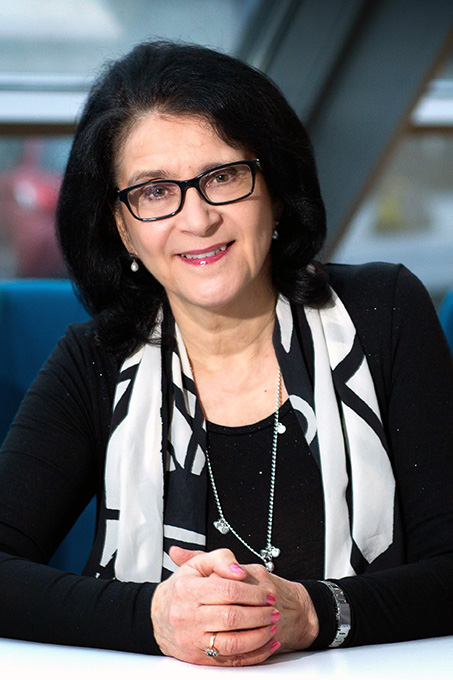
汉娜莉·涅米
Hannele Niemi
赫尔辛基大学
University of Helsinki
Hannele Niemi is a Professor of Education and Research Director at the University of Helsinki and was nominated as UNESCO Chair (Professor) on Educational Ecosystems for Equity and Quality of Learning 2018-2026. She has been Vice-Rector for Academic Affairs (2003–2009) and a Dean of the Faculty of Education (2001–2003) at the University of Helsinki. She has been a Visiting Professor at Michigan State University and a Visiting Scholar at Stanford University. She has been rewarded as an honorary doctor or professor at four national or international universities. She has been a Chair of the University Board at the University of Lapland (2018-2023). She has led several large national and international research projects, including AI in Learning (2018-2022). She leads the DAIA project (Digital Academies in South Africa), 2023-2025. She has more than 400 scientific, previewed articles or chapters on education. She is a co-editor (Hannele Niemi, Roy D. Pea, & Yu Lu) of the book, which was rewarded by Springer Nature in China in 2024.

亚瑞·穆提斯尔塔
Jari Multisilta
萨塔昆塔应用科学大学
Satakunta University of Applied Sciences
Professor Jari Multisilta is the President and CEO of Satakunta University of Applied Sciences in Finland. He is also Associate Professor at the Faculty of Behavioural Sciences at the University of Helsinki, Finland. Previously, he was the director of the Pori University Consortium and the director of the Cicero Learning Network at the University of Helsinki. He has been doing research on learning and modern communication and information technologies since the 1990s. His current research interests include digital transformation in higher education. Previously he has worked on mobile learning, mobile video storytelling and educational games. He has been Visiting Scholar at Stanford University, School of Education, H-STAR Institute, Visiting Fellow at Nokia Research Center. He has been invited to speak about the Finnish educational system and the use of technology for learning in several countries, including the USA, Argentina, Brasilia and China. He has published over 100 international peer-reviewed conference papers and journal articles in his research area.
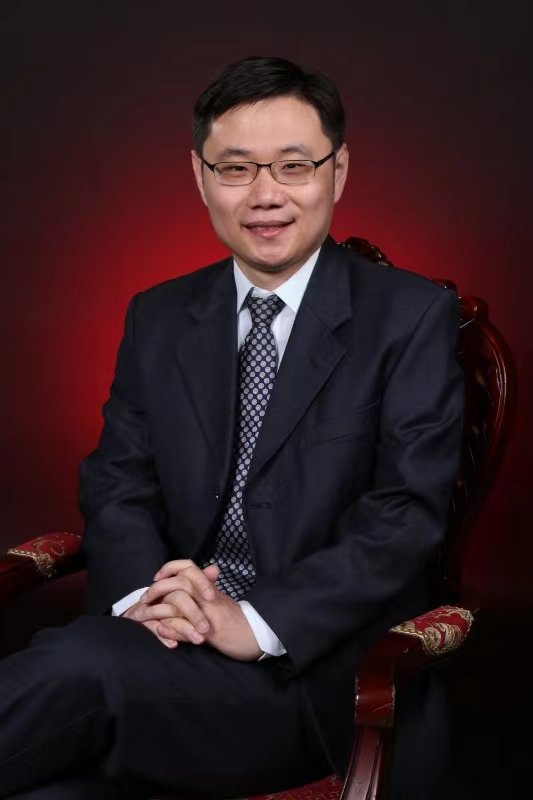
卢宇
LU Yu
北京师范大学
Beijing Normal University
Yu LU received the Ph.D. from National University of Singapore in computer engineering. He is currently an Associate Professor with the School of Educational Technology, Faculty of Education, Beijing Normal University (BNU), where he also serves as the director of AI Lab at the advanced innovation center for future education (AICFE). He has published more than 100 academic papers in the prestigious venues, and serves as the associate editor for multiple academic journals, such as IEEE Transactions on Learning Technologies. He also serves as PC member or track chair for multiple international conferences (e.g., AIED, EDM, AAAI, ACL, EMNLP, IJCAI, ICCE, GCCCE). Before joining BNU, he was a research scientist and principle investigator at the Institute for Infocomm Research (I2R), A*STAR, Singapore. His research interests mainly sit at the intersection field of artificial intelligence and education.
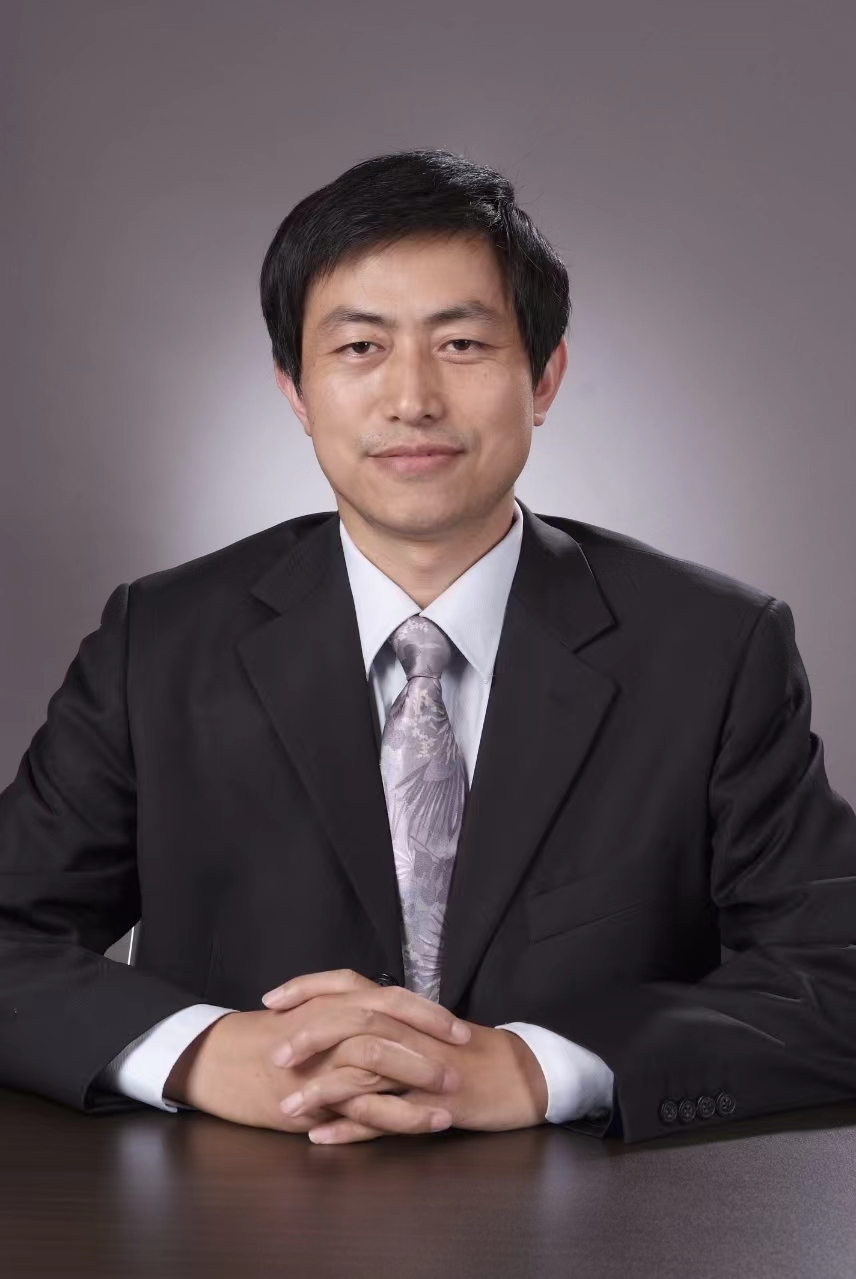
贾积有
JIA Jiyou
北京大学
Peking University
Dr. Jiyou Jia is a full professor and the Head of the Department of Educational Technology, Graduate School of Education, Peking University, China and is also the founding director of International Research Center for Education and Information at Peking University. He was invited to work as a guest professor in 2015 by School of Education, Technical University of Munich, Germany, and Distinguished Professor at Institute for Research in Open and Innovative Education, the Open University of Hong Kong from August 2017 to December 2018. Dr. Jia received B. S. and Master of Education from Peking University, and Ph.D. in artificial intelligence from Augsburg University, Germany. His research interests include educational technology and artificial intelligence in education, especially in TELL (Technology Enhanced Language Learning), math education with ICT, and decision making support system. He has been responsible for more than 15 national projects and international cooperation projects. His research has won a number of national and international prizes including Outstanding Paper Award from Emerald Publishing 2023, the First Class Award of the Fifth National Award for Outstanding Achievements in Educational Research, from Ministry of Education, China, 2016, and IAAI (Innovative Application of Artificial Intelligence) Deployed Application Award by AAAI (Association of Advancement of Artificial Intelligence), USA, 2008.
邀请报告嘉宾
Invited talk speakers

图亚·图伦
Tuija Turunen
拉普兰大学
University of Lapland
Professor Tuija Turunen is a leader of the teacher education programme at the University of Lapland, Finland and holds the UArctic Chair in Education for Social Justice and Diversity. Professor Turunen is an internationally recognized expert in these fields and has given invited addresses throughout the globe both in scientific and popular arenas, e.g. UNESCO Teacher Task Force in Jamaica, IICBA in Ethiopia and various forums in Europe. She has published widely and leads several national and international projects. Professor Turunen’s current research interests focus on teacher education, indigenous education, professional development in higher education, educational transitions (especially starting school), multi-professional work in schools, and preventative school welfare work.
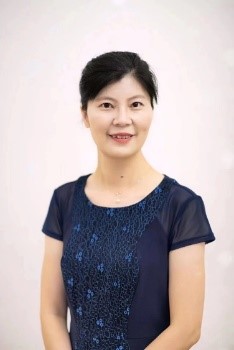
李葆萍
LI Baoping
北京师范大学
Beijing Normal University
Dr. Li, associate professor of Faculty of Education, Beijing Normal University, co-director of the Remote Interaction Laboratory at the National Engineering Center for Cyberlearning and Intelligent Technology. Research aera include: educational digital transformation and school development; learning spaces for vocational and adult education; teacher professional development, etc.
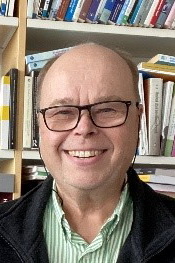
亚里·拉沃宁
Jari Lavonen
赫尔辛基大学
University of Helsinki
Dr. Jari Lavonen is a Professor of Physics and Chemistry Education at the University of Helsinki, Finland. He has been working as a director of the National Teacher Education Forum and Chair of the Finnish Matriculation Examination Board. He is a member of Finnish Academy of Science and Letters, Distinguished visiting professor at the University of Johannesburg and Visiting professor at the University of Tartu. He has been researching science and teacher education for the last 34 years. His publications include 161 refereed scientific papers in journals and books and 185 books for science teachers and science education.

罗九同
LUO Jiutong
深圳大学
Shenzhen University
Dr. Luo received his PhD in education from Faculty of Education, The University of Hong Kong and was the postdoc fellow at Advanced Innovation Center for Future Education at Beijing Normal University. His research interests include educational technology in education, digital educators, and digital wellbeing.
会议组委会
Conference Organizing Committee
指导委员会
Steering Committee
周作宇 ZHOU Zuoyu
北京师范大学前副校长,中芬联合学习创新研究院中方理事会主席
Former Vice President of Beijing Normal University, Chair of JoLII China
Olli-Pekka Malinen
赫尔辛基大学副教授,中芬联合学习创新研究院芬方理事会主席
Olli-Pekka Malinen, Associate Professor, University of Helsinki, Chair of JoLII Finland
组委会成员
Organizing Committee Members
王君 WANG Jun
北京师范大学心理学部副部长,中芬联合学习创新研究院院长
Vice Dean of Faculty of Psychology, Director of JoLII China, Beijing Normal University
江涛 JIANG Tao
中科院深圳先进技术研究院实验学校校长
President of Experimental School of Shenzhen Institute of Advanced Technology
丁宁宁 DING Ningning
深圳理工大学党政办副主任
Deputy Director of Publicity Office of the CPC Shenzhen University of Advanced Technology Committee
分论坛及工作坊负责人
Sub-Forum and Workshop Leaders
杨东 YANG Dong
北京师范大学未来教育学院
College of Education for the future, Beijing Normal University
钱文丹 QIAN Wendan
赫尔辛基大学教育学院
Faculty of Educational Sciences, University of Helsinki
唐鑫 TANG Tin
上海交通大学教育学院
School of Education, Shanghai Jiao Tong University
牛双红 Shuanghong Jenny NIU
赫尔辛基大学教育学院
Faculty of Educational Sciences, University of Helsinki
王岩 WANG Yan
深圳大学教育学部
Faculty of Education, Shenzhen University
蔡瑜琢 CAI Yuzhuo
坦佩雷大学管理与商学院高等教育研究中心
Faculty of Management and Business, Tampere University
大会秘书处(字母顺序A-Z)
Conference Secretariat (Alphabetical Order)
陈芳竹主任 CHEN Fangzhu
黄彤主任 HUANG Tong
毛景洋主管 MAO Jingyang
王建主任 WANG Jian
许仙玉主任 XU Xianyu
杨静博士 YANG Jing
张赢老师 ZHANG Ying
联系方式
Contact
北京师范大学中芬联合学习创新研究院(理事及会员单位)
电话:010-58805879 邮箱:jolii@bnu.edu.cn
中国科学院深圳先进技术研究院实验学校(会务咨询)
电话:15019261562 邮箱:425150102@qq.com
深圳理工大学(会议费及发票)
电话:18818555445 邮箱:zhangying@suat-sz.edu.cn
酒店推荐
Hotels
会场附近推荐酒店及协议价格
维也纳酒店龙珠店:标准间350元,豪华间420元。联系人:彭倩 13714903335
新南山酒店:大床房558元,双床房588元,行政双床598元。联系人:王亚娴15084579095
麒麟山庄:标间和大床房均为700元。联系人:李德响 1363282681
Recommended Hotels Near the Venue with Negotiated Rates
Vienna Hotel Longzhu Branch: Standard Room at 350 yuan, Deluxe Room at 420 yuan. Contact Person: Peng Qian, Tel: +86 13714903335
Shenzhen New Nanshan Hotel: King Bed Room at 558 yuan, Twin Bed Room at 588 yuan, Executive Twin Bed Room at 598 yuan. Contact Person: Wang Yaxian, Tel: +86 15084579095
Shenzhen Kylin Villa: Both Standard Room and King Bed Room are priced at 700 yuan. Contact Person: Li DeXiang, Tel: +86 13632826811
酒店介绍 Hotel Overviews
维也纳酒店龙珠店是一家按四星级标准建造的国际商务型酒,位于龙珠四路金谷创业园内,距离学校直线距离1.8公里,约10分钟车程。酒店步行2分钟即可到达地铁7号线龙井站B出口。距深圳北站约15分钟、宝安机场约30分钟车程。酒店拥有温馨舒适的豪华客房共计260间,另配套有会议室,自助餐厅,中餐厅,711便利店,SPA馆,棋牌室为团队培训,商务洽谈,旅游观光,休闲娱乐的上佳之选。
Vienna Hotel Longzhu Branch is an international four-star business hotel. It is located in the Golden Valley Innovation Park on Longzhu Fourth Road. The straight-line distance between the hotel and the school is 1.8 kilometers, which takes around 10 minutes by car. The nearest Metro station to the hotel is the Longjing Station of Metro Line 7, which takes 2 minutes' walk to get to the B exit of longjing station from hotel. It takes about 15 minutes' drive to Shenzhen North Railway Station, and 30 minutes' drive to Shenzhen Bao'an international Airport. The hotel has a total of 260 warm and comfortable luxury rooms, as well as meeting rooms, a self-service restaurant, a Chinese restaurant, a Seven-Eleven convenience store, a SPA, and a chess room, making it a great choice for team training, business negotiations, sightseeing, and leisure and entertainment.
深圳新南山酒店位于大型生态商业综合体侨城坊园区,融住宿、购物、美食、休闲娱乐等资源为一体,距离学校直线距离970米,步行约18分钟,车程约5分钟。距2/8号线侨城北地铁站1.8公里,距离深圳北站30分钟车程,深圳湾口岸20分钟车程,深圳宝安国际机场30分钟车程。酒店拥有120间舒适典雅的观景客房与套房设计上融合了岭南建筑与现代风格,设有品牌家私等个性配套,拥有豪华大床房、全景大床房、豪华双床房,行政双床房、豪华家庭房、行政套房,共六种房型供您选择,为您提供舒适的入住环境。酒店12楼设有两间多功能会议厅,配备最先进的会务设备,设有30人的商务视频会议室,10人贵宾接待室。酒店16楼设有300平米开放式海鲜火锅自助餐厅,尊贵的VIP包房,整体设置风格典雅时尚,空间开阔舒适。酒店地址:深圳市南山区侨香路4080号侨城坊T4栋新南山酒店
Shenzhen New Nanshan Hotel is located in Qiaochengfang park, a large ecological commercial complex. It integrates resources such as accommodation, shopping, cuisine, and leisure and entertainment. It is 970 meters in a straight line from the school, about an 18-minute walk and a 5-minute drive. It is 1.8 kilometers from Qiaocheng North Metro Station on Line 2/8. It takes 30 minutes to reach Shenzhen North Station, 20 minutes to Shenzhen Bay Port, and 30 minutes to Shenzhen Bao'an International Airport.The hotel has 120 comfortable and elegant view guest rooms and suites. The design combines Lingnan architecture and modern style and is equipped with personalized facilities such as branded furniture. There are six room types for you to choose from: deluxe king room, panoramic king room, deluxe twin room, executive twin room, deluxe family room, and executive suite, providing you with a comfortable stay environment.On the 12th floor of the hotel, there are two multifunctional conference rooms equipped with the most advanced conference facilities, including a business video conference room for 30 people and a VIP reception room for 10 people.On the 16th floor of the hotel, there is a 300-square-meter open seafood hot pot buffet restaurant and noble VIP private rooms. The overall setting style is elegant and fashionable, and the space is open and comfortable. Hotel address: New Nanshan Hotel, Building T4, Qiaochengfang, 4080 Qiaoxiang Road, Nanshan District, Shenzhen City.
深圳麒麟山庄座落于深圳市南山区麒麟山麓,风光秀丽的天鹅湖畔,是深圳市定点的政府会议、住宿接待酒店。开业以来,山庄以优质的服务赢得了入住宾客的广泛赞誉山庄交通便利,自然环境优美。拥有总统套房、套房、单间、双人间等各类客房共计365间(套)。酒店拥有各类会议室20余间,会议室设施设备先进、齐全。最大的麒麟厅面积达630平方米,可同时容纳500余人会议或就餐。各具特色的宴会厅、西餐咖啡厅,为您呈现不同风味的中西餐饮美食,可同时为宾客提供1500个餐位。山庄独具特色的室内外网球场游泳池,配套的健身康乐设施是您在工作生活之余,身心休息、恢复疲劳的理想场所。酒店地址:广东省深圳南山区西丽湖侧沁园路4599号
Shenzhen Kylin Villa is located in the Kylin mountain, Qujingtongyou park, Nanshan District with beautiful natural environment. It's very convenient that about 8 minutes' drive from Shenzhen North railway station, about 15 minutes' drive from Shenzhen Window of the world, Shenzhen happy valley, and 30 minutes' drive away from the Baoan airport. The guests can enjoy swimming or playing table tennis, fitness facilities such as Kangle in the hotel.We have luggage storage and insurance box services and we provide both Chinese and Western food for each characteristic.Hotel address:No.4599 Qinyuan Road, Nanshan District, Shenzhen, Guangdong